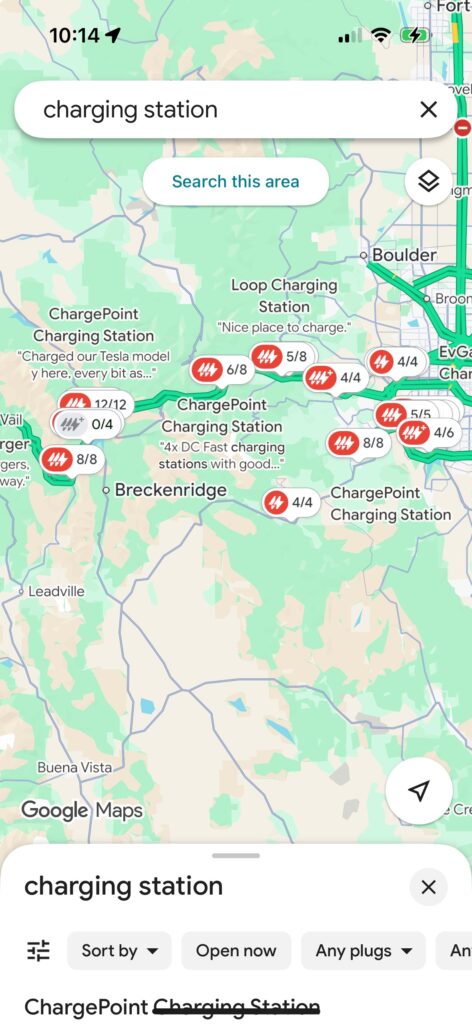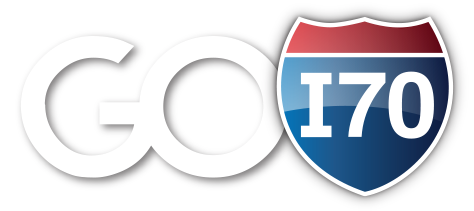Winter mountain driving in an electric vehicle (EV) isn’t just plugging in and hitting the road – it’s about smart prep, buffer zones and knowing your terrain. With Colorado’s EV momentum growing and fast-charging networks expanding, there is great infrastructure in place – but trip planning and prep are still required.

Colorado secured the final $12 million of federal funding under the National Electric Vehicle Infrastructure (NEVI) Program, part of a $56.5-million investment in state charging infrastructure. Already, the state has awarded funding to support 246 fast-charging ports along major transportation routes. EV registrations in Colorado have now topped 200,000 – and more than 80% of Colorado’s highway system is within 30 miles of a fast-charging station.
For EV drivers on the I-70 Mountain Corridor, this means the backbone is in place. But the availability of more infrastructure doesn’t mean you skip prep.
Mountain Driving EV Prep
- Charge smart, not just full
- Start your trip with a full battery – make sure you have a buffer. When you’re climbing the hills on I-70, especially if it’s cold, your EV will consume more energy.
- Pre-warm your car (battery and cabin) while still plugged in, if possible. A cold battery means less efficient energy delivery.
- Downhill sections may help with regenerative braking, but uphill, cold, wind and winter loads (heat, defrost, lights) will eat range.
- Know your charging options along the I-70 Mountain Corridor
- Don’t assume perfect charging coverage along the entire route. Before you go, identify key fast-charging stations and mark back up locations in case your first plan gets delayed.
- If you hit traffic (which happens often on I-70’s mountain section) your battery may decline more than planned. Ensure you’re not too marginal.
- Winter mountain driving means more variables
- Cold temps reduce effective battery capacity. The steeper the grade, the more energy required.
- On the I-70 Mountain Corridor plan for chain law/traction law conditions – make sure your vehicle meets the traction rules for winter driving in Colorado.
- Have a winter emergency kit in your car: blankets, portable phone charger, shovel, water/food, etc. Especially in remote stretches of I-70 where services may be limited.
- Monitor weather and traffic conditions for I-70: delays, weather closures and chain‐law activations can all affect your timeline and energy demands. COtrip.org provides the best real-time traffic information for planning your trip.
- Adjust your driving style for energy efficiency
- Use moderate speed uphill. Big climbs drain battery quicker.
- Use Eco mode or efficiency mode if your EV supports it.
- Use regenerative braking to your advantage when descending – this helps recover some energy.
- Avoid heavy accelerations. Smooth throttle + smooth transitions = better range.
- Use cabin heating smartly: pre‐heat while plugged in, then moderate heating while driving. Minimizing draw when possible preserves range.
Your trip planning checklist for I-70 Mountain Corridor winter EV travel:
- Battery charged to high capacity before departure
- Cabin and battery pre-warmed while plugged in
- Equipped with winter-rated tires, good tread and ensure you meet Colorado’s traction/chain laws
- Mapped fast-charging stations along your route, including backup options
- Stocked emergency kit: blankets, phone charger, water/snacks, shovel
- Checked Weather/traffic for the day
- Have a driving plan: moderate speed, smooth throttle, regenerative braking on descents, extra buffer for range
- Planned for delays: traffic jams, weather changes—and allow extra time and energy margin
